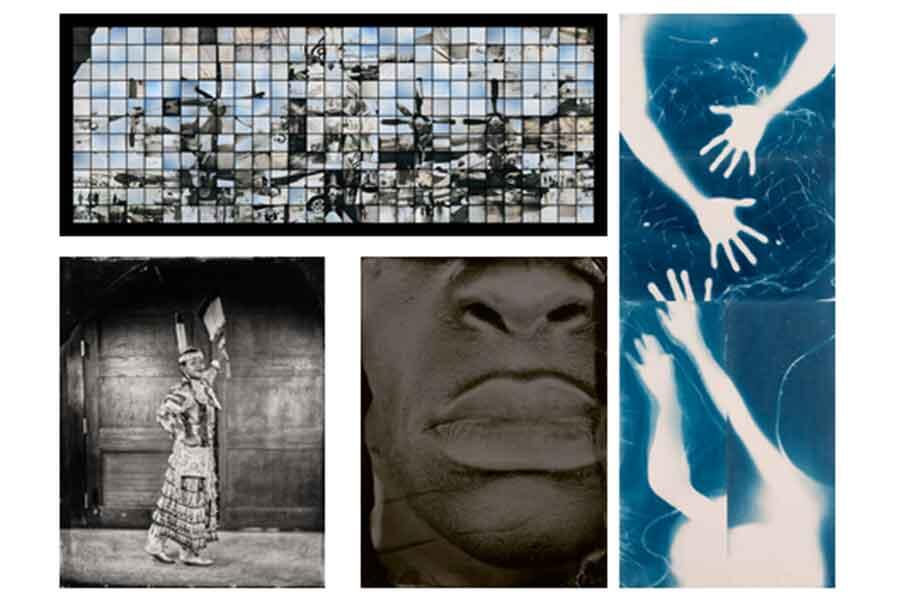
(top to bottom, left to right): Takashi Arai, Multiple Monument for B29: Enola Gay, 2017, Daguerreotype, 200 x 77cm; Edie Bresler, 5 participants (2 days, 3 places), 2019, Four unique cyanotypes on archival vellum, 18 x 48 in; Will Wilson, Madrienne Salgado, Jingle Dress Dancer/Government and Public Relations Manager for the Muckleshoot Indian Tribe, Citizen of the Muckleshoot Nation, 2017, Talking Tintype, from the series Critical Indigenous Photographic Exchange: Seattle Art Museum; Myra Greene, Untitled (Ref. #70) from Character Recognition, 2006-2007, Black glass ambrotype.
**Postponed** Handmade Photography Today Symposium
**Event post-poned**With an abundance of caution, the Davis Museum at Wellesley College has suspended all public access through March 31st. Public programs have been canceled or rescheduled and gallery access is limited to the Wellesley College campus community. Please call for more information and updates, 781.283.2051.**
In conjunction with the exhibition Making, Not Taking: Portrait Photography in the 19th Century, the Davis Museum presents a day-long symposium that will explore contemporary iterations of 19th-century photographic processes.
From photograms to platinum prints, alternative approaches to automatic point-and-shoot and digital photography have spiked among professional and amateur photographers around the globe in recent years. The boom in what Lyle Rexer has termed “the antiquarian avant-garde” is in part a reaction to the supposedly desensitized nature of digital photography, but it should also be understood in the context of a more widespread turn to the materials, process, and event of photography as a site of knowledge production. We will hear from four acclaimed photographers working in 19th-century processes: Myra Greene (ambrotypes), Will Wilson (tintypes), Edie Bresler (cyanotypes), and Takashi Arai (daguerreotypes). The speakers will discuss how the specific material conditions of early photographic formats have the potential to inform and produce alternative understandings of our contemporary relationship to historical imagery.
Free and open to the public. Advance registration and RSVP are requested.
Co-hosted with the Photographic Resource Center.
Courtesy of the artists.
